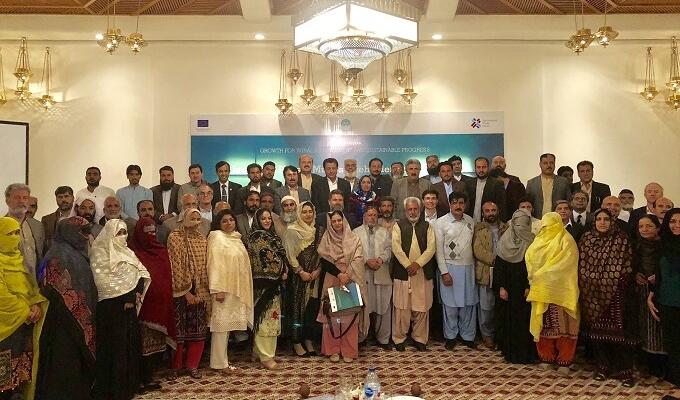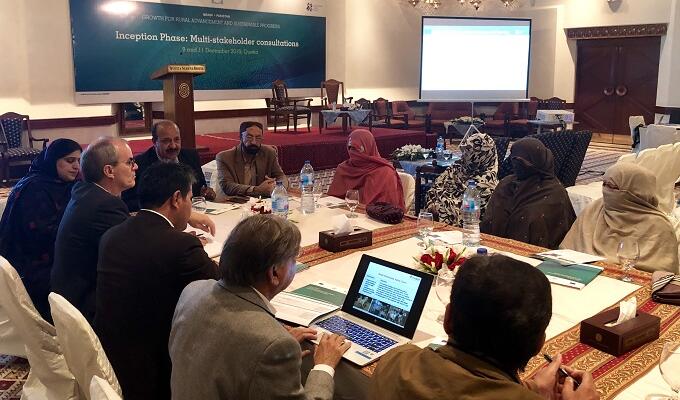

GRASP: second round of stakeholder consultations completed in Pakistan
Participants from the government, research and academia, farmers, development partners and public and private institutions and organizations gathered in Karachi, Quetta and Hyderabad for the second round of multi-stakeholder consultations on efforts to reduce poverty in Pakistan.
Under the project known as Growth for Rural Advancement and Sustainable Progress (GRASP), small and medium enterprises in Sindh and Balochistan associated with livestock, dairy and horticulture will be strengthened over the next 5.5 years.
This project is funded by the European Union and is implemented by International Trade Centre (ITC).
Benefitting from the first round of consultations earlier in September that identified priority products in horticulture and livestock, the second round validated findings on specific constraints along the selected value chain and sought advice on identifying best ways to improve competitiveness and produce safe, nutritious food. In addition, key issues such as producers’ capabilities, public and private support services effectiveness, and access to finance were also re-examined. Agro processors, food retailers, farmers, agribusiness services working in vegetables, fruits, meat and dairy, public support services took part in the consultations.
Mr Abdul Razak Dawood Advisor for Commerce, Textile, Industries, Production and Investment has already described this EU project as an effort in the right direction and coming at the most appropriate time when Pakistan is geared toward improvement in these sectors.
FAO and PPAF representatives were also present.
Roshan Ara, Development Advisor, EU Delegation Pakistan said `GRASP aligns with the rural development and economic cooperation initiatives of the European Union in Pakistan as it will help SMEs in horticulture, livestock and dairy sectors become more competitive by making improvements at all levels of the value chains. These consultations will help us adapt to provincial context in Pakistan for maximum impact on the lives of people in Sindh and Balochistan'.
Robert Skidmore, Chief, Sector and Enterprise Competitiveness International Trade Centre speaking about the consultations said the second round provided an opportunity for fruitful discussions on working together for improving performance of the prioritized value chains in the horticulture, livestock and dairy sectors. Eventually it would help in achieving a measurable reduction in poverty and increase in economic growth in addition to creation of more job opportunities in the country, he said.
Livestock, dairy and horticulture – which account for 70% of value-added agriculture – have particularly strong potential for growth, climate adaptation and increased participation of women. Small and medium-sized enterprises in these two sectors face major challenges.
GRASP will help small and medium-sized enterprises in horticulture and livestock become more competitive by making improvements at all levels of the value chain.



